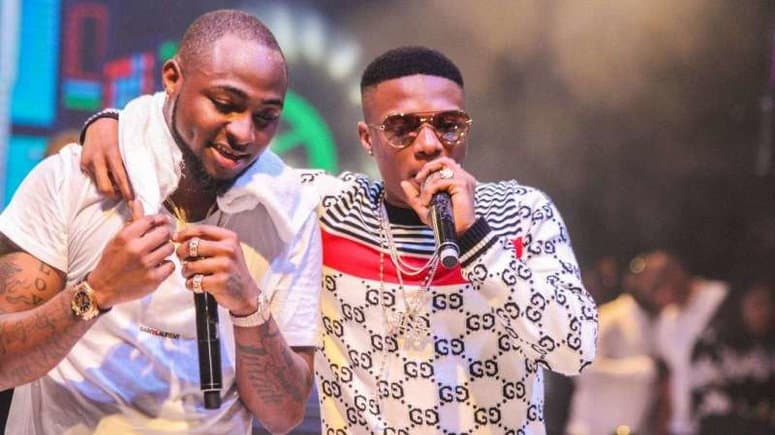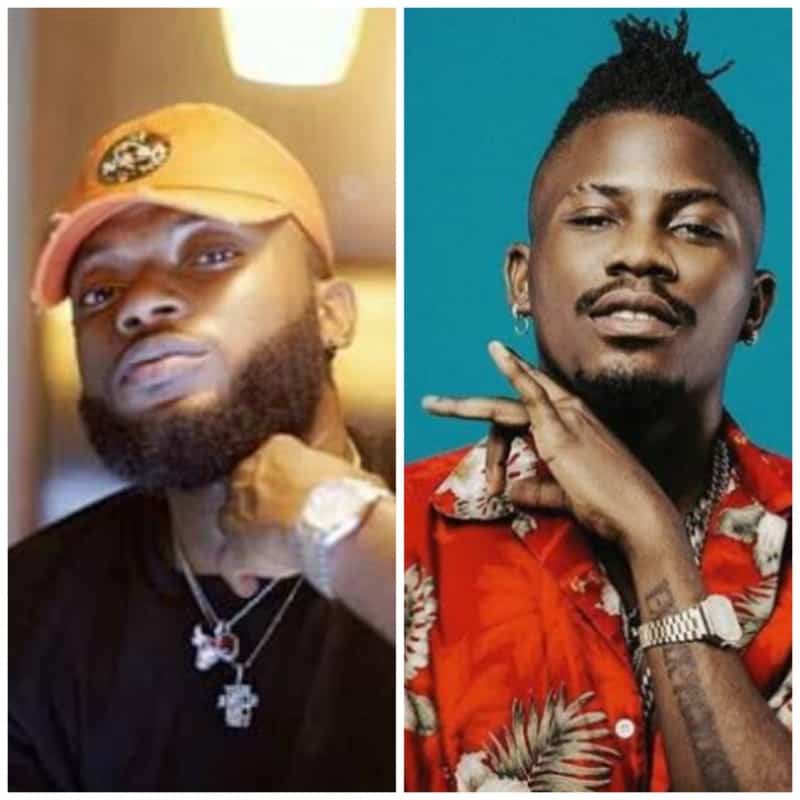Exploring the issues with the need for fans to compare musicians
'Don't Michael & Prince me and Ye'
'Don't Michael & Prince me and Ye'
These days, it seems as though rivalries between artists bring about an intoxicating high for music lovers and fans of art in general. In 2007, the hip-hop industry pit 50 Cent against Kanye West in the build up to the release of their respective studio albums,’Curtis’ & ‘Graduation’, which was buttressed by their infamous face-off on the Rolling Stone cover that same year. The ensuing media ‘beef’ was a marketing success, and it also marked a change in the direction of mainstream hip-hop music. Kanye represented a new, more melodic alternative, while 50 Cent was the more established hip-hop OG, whose commercial success made him a near-invincible adversary. The victor of that battle was Kanye West’s, ‘Graduation’ which outsold ‘Curtis’, and Kanye then went on to dominate not just hip-hop, but pop music in general.
Last decade, afropop fans were consumed with analysing who was better between Wizkid and Davido, which was egged on by their beef which they often took to social media. Each release sparked debate with arguments and rebuttals about who was the ace pop star in Nigeria. Even after sharing the stage together several times in shows of solidarity, the conversation around Wizkid vs Davido is still very much present, and with more accolades, hits and success, grooming their own stead of artists, there’s no real clear winner.

The Wizkid and Davido comparisons are more akin to Michael vs Prince though, as they are both contemporaries whose careers ran parallel to one another, as distinct and prominent figures within their spheres of pop music. Whilst human beings are fiercely competitive, it still begs the question; why do fans love to compare artists?
According to a Social Comparison Theory, human beings have a basic drive to evaluate their opinions and abilities, and people evaluate themselves through objective, ‘nonsocial’ means. However, when objective ‘nonsocial’ means are unavailable, people evaluate their opinions and abilities by comparison to other people. Furthermore, the theory states that the tendency to compare oneself to another person decreases, as the difference between their opinions and abilities becomes more divergent, which is why Burna Boy is more fairly compared to Davido or Fela, than he would be to Kanye West or Prince.
Music is subjective and experience-based, as most art is. With so many styles, variations and tastes, it’s extremely hard to make an air-tight argument about what is ‘the best’ music – everything is debatable, and this is perhaps what further fuels the need for comparisons. Artists are graded initially by how popular they are and how much acclaim they have built. Warring factions of loyal fanbases can easily spend hours making a case for their faves.
Social media has added a new layer of fan’s access, and thanks to constant updates through Twitter, Instagram and other channels, fans feel closer to artists they love, resulting in devout, cult followings for all the different tiers of artists. The result of this is standom, and Nigerian Twitter users would be all too familiar with ‘Wizkid FC’ the ever ready defence squad for Starboy.
These types of comparisons are not just limited to afropop. Twitter users recently decided to compare rappers YCEE & Dremo, following the release of ‘Codename, Vol. 2’. Whilst they share the same genre, the circumstances around their music, from influence to rollout strategies are wildly different. Some fans went as far as saying that YCEE has not had a record as big as “Juice” in a while, ignoring the fact that YCEE had gone through a prolonged legal battle, which not only prevented him from releasing music but most likely also took a mental toll, which cannot be gotten over so easily.

Context such as YCEE’s label problems are usually neglected in conversations about comparing talent. For the artist, this is damaging, as it waters down the years of hard work and dedication put into creating the music we love, and distils the fact that there’s an endless list of parameters for success. Creating an original body of work is a feat in its own right, and should be appreciated regardless.
Stan culture shares a lot of its origin in hip-hop culture. After many years of this fandom, the term was coined by Eminem, due to the titular song which recounted the tale of an over-obsessed fan. Stan culture defined a lot of outcomes in hip hop, from boosting Kanye’s first week sales to defeat 50 Cent, to Drake fans rallying around the 6God like an episode of Power Rangers during his feud with Meek Mill, creating killer memes, adding a new dimension to traditional rap beef.
Stans can be very useful in creating hype for an artist, supporting fundraising and other campaigns for artists, they also often engage in rivalling contests, listing stats and building opposing arguments in support of their favourite artists. While most times these conversations are fun and can provide visibility for a creative’s work, they sometimes descend into insult matches, with very little productive impact.
No two artists are alike. Each artist is a specific and unique alchemy of experiences, influences, stylistic singularities and the beauty of art is in appreciating its purpose within context. There is no doubt that competition will continue to push artists to produce even better records, however, comparisons should never be the basis with which we define the artist. What defines an artist is the creativity they display, their individuality which makes them personable, and the consistency present in their art.
Featured Image Credits: Web
[mc4wp_form id=”26074″]
Djaji is a creative Vagabond, send him your takes on music and African culture @djajiprime

